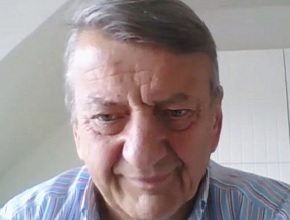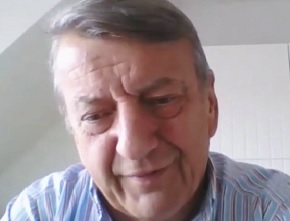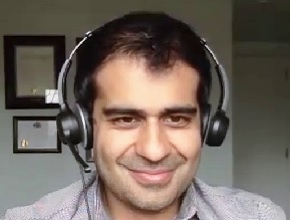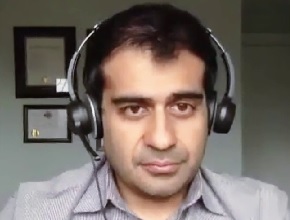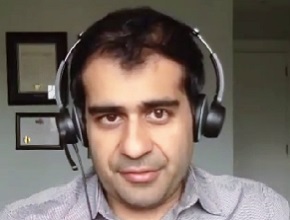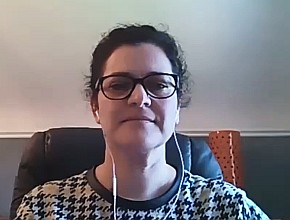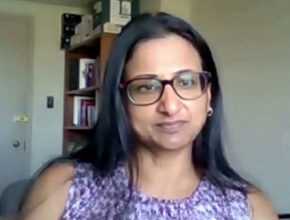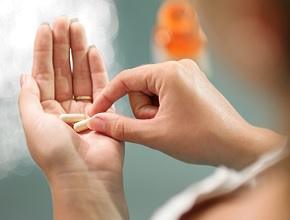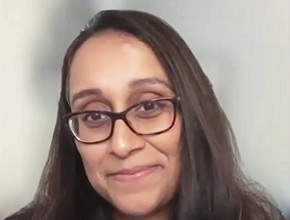Dr Jean-Louis Vincent, professor of intensive care medicine at Université libre de Bruxelles, past president of the World Federation of Societies of Intensive and Critical Care Medicine, and accomplished author and researcher, answers questions from Dr Roman Jaeschke on coronavirus disease (COVID-19) prevention and early management.
For part 1 of the interview, click here. For part 2, click here.
Roman Jaeschke, MD, MSc: Maybe one other question, which is outside of our area of expertise, but—you know—everybody has [an] opinion these days. Are there in Belgium any opinions about using medications to either prevent or to treat early stages of COVID-19 on an outpatient [basis]? Are people using anything to stop [the infection] or protect [themselves]?
Jean-Louis Vincent, MD, PhD: No. Again, hydroxychloroquine has been proposed, but it doesn’t work. Colchicine has been proposed—[it] doesn’t work. The clinical trial from Canada was really not very exciting. There is some indication that inhaled corticosteroids may perhaps provide some protection, but it’s controversial. I think we need more data before we routinely advise patients with early COVID-19 to take inhaled corticosteroids. Otherwise, as I indicated, for those patients who have comorbidities, especially those who are immunosuppressed, monoclonal antibodies could be considered. I indicated [that] they could be given shortly after hospital admission, but there is even a potentiality of admitting patients to hospital for the administration of the monoclonal antibodies, and perhaps if the patient improves a little bit, the patient could go back home.
Roman Jaeschke: That’s for exposure, as a primary prevention?
Jean-Louis Vincent: No, before having COVID-19 there is really nothing that works. We need to eat properly. You could still try to take a little bit of vitamins if you like, a little bit of zinc if you like, but that’s probably not very efficacious. The preventive measures, of course, are important if you cannot be vaccinated and vaccination remains the best prevention, no doubt about this.
Roman Jaeschke: You are talking about monoclonal antibodies. What about convalescent plasma these days? What’s your opinion?
Jean-Louis Vincent: Actually, this has been disappointing. I suppose that while [recording] our earlier interviews I was quite optimistic and positive about it, but the overall experience has not been very positive. There was one trial from South America, whose results appeared in the New England Journal of Medicine, where the results were positive, but these were patients who were treated quickly after… shortly after hospital admission and they were very old; some of them had a bit of dementia, I must say—they were very debilitated due to their older age; and they got plasma with high titers. They combined all potential advantages of the plasma. In the other studies, unfortunately, the results have not been so positive. So at the end, it’s really the monoclonal antibodies that came thereafter [that] are more efficacious and they have shown their efficacy. But again, there is a cost associated with it. Plasma is less costly than the monoclonal antibodies, which cost easily >1000 dollars.
Roman Jaeschke: Professor Vincent, we all enjoy your enthusiasm and optimism, I have to say.
Jean-Louis Vincent: Yes, we’ll get better!
Roman Jaeschke: Go for it. I hope our interviews will become more enthusiastic and optimistic. The last question: How are you going to avoid COVID-19 dominating your program in Brussels?
Jean-Louis Vincent: That’s a good question. Of course, there will be a lot of COVID-19, but I think it’s also important to integrate COVID-19 in the other topics, something like, “What have we learned about sepsis with this form of viral sepsis? What have we learned about the management of acute respiratory distress syndrome (ARDS) with COVID-19-associated ARDS? What about the ethical aspects—you know—prioritization, which is the fourth P letter in my recent summary in Critical Care [doi: 10.1186/s13054-021-03467-y] about what we learned about COVID-19?"
So, there are some ethical aspects. How can we integrate it in the session on ethics? What about the relation with the family? It will not be the same after COVID-19 and before COVID-19 [pandemic]. We learned how to better communicate with them, perhaps using a Zoom system as we do now—and telemedicine in general—but this kind of telecommunication will be used more [often] in the future than it was in the past, etc. So, we should take the lessons and we can improve the management of the acutely ill patients by a number of elements. I think we learned a lot and we can be proud of what we have accomplished, of course.
Roman Jaeschke: The world changed, you have not, and I’m really enjoying talking to you every time. Thank you so much. I really appreciate it.
Jean-Louis Vincent: Thank you, thank you. It’s a pleasure, my good friend.
 English
English
 Español
Español
 українська
українська

